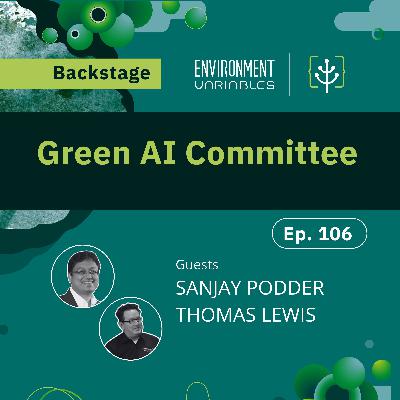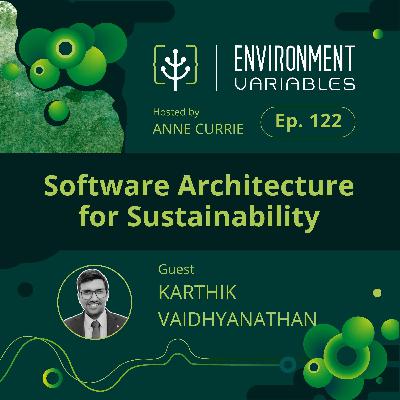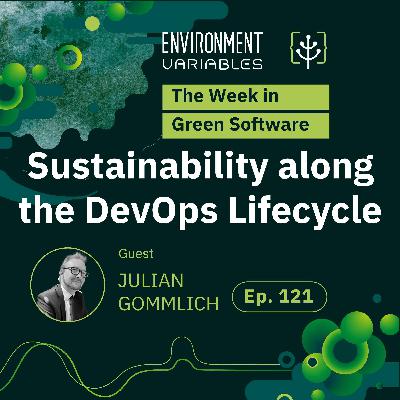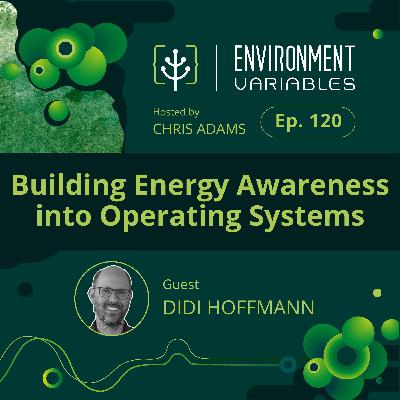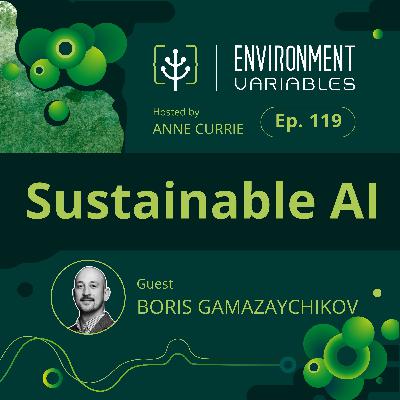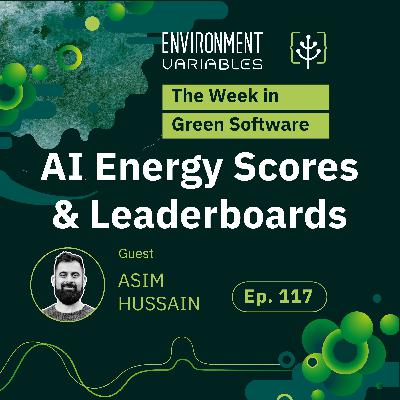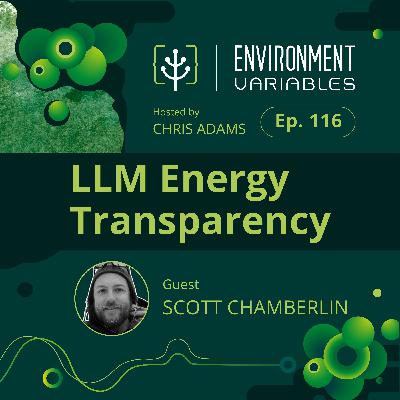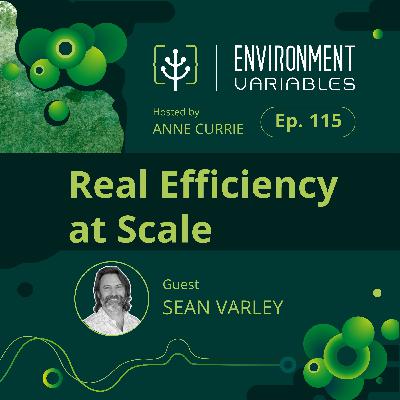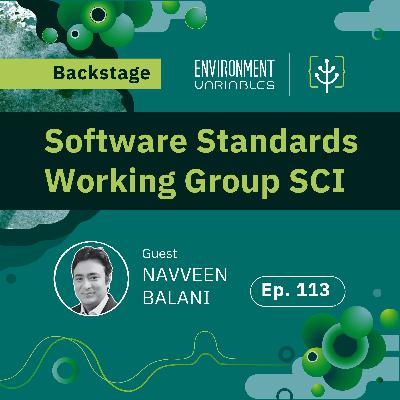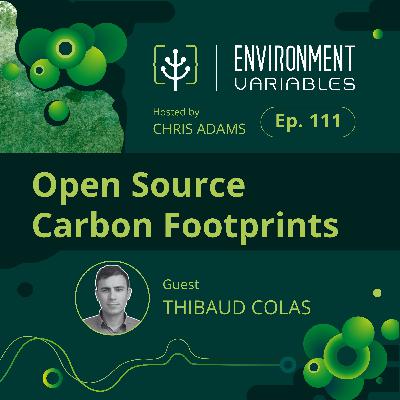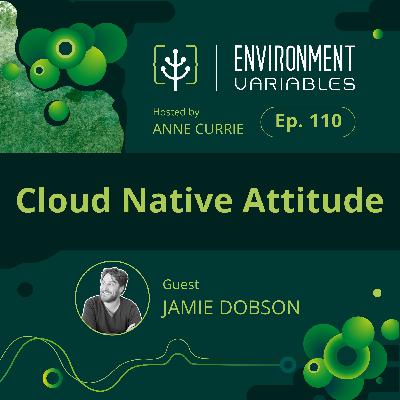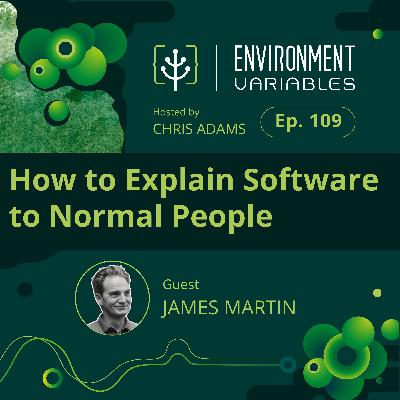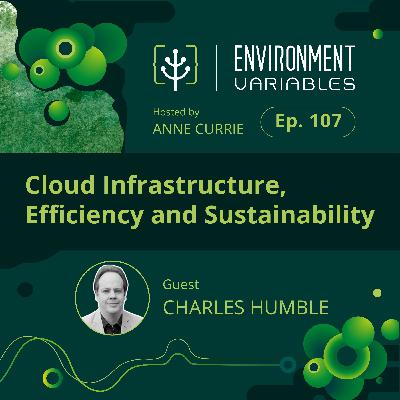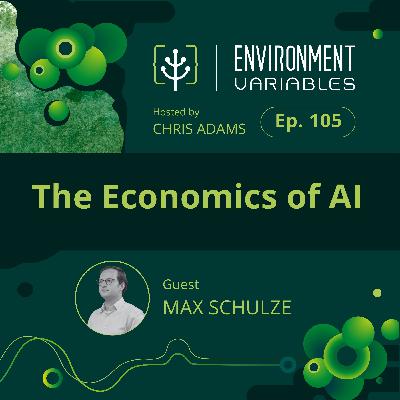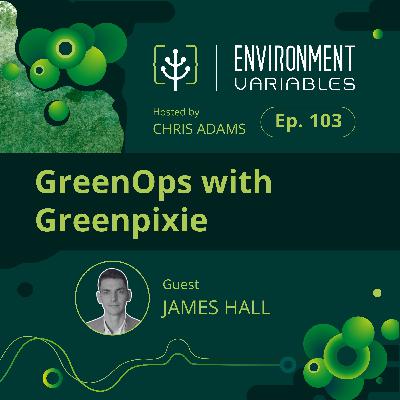Backstage: Green AI Committee
Update: 2025-05-01
Description
In this special backstage episode of Environment Variables, producer Chris Skipper spotlights the Green AI Committee, an initiative of the Green Software Foundation launched in 2024. Guests Thomas Lewis and Sanjay Podder share the committee’s mission to reduce AI's environmental impact through strategic focus on measurement, policy influence, and lifecycle optimization. The episode explores the committee’s approach to defining and implementing “green AI,” its contributions to public policy and ISO standards, and collaborative efforts to build tools, best practices, and educational resources that promote sustainable AI development.
Learn more about our people:
Find out more about the GSF:
Resources:
- Green AI Committee [00:00 ]
- Green AI Committee Manifesto [03:43 ]
- SCI for AI Workshop [05:28 ]
- Software Carbon Intensity (SCI) Specification [05:34 ]
- Green Software for Practitioners (LFC131) - Linux Foundation [13:54 ]
Events:
- Carbon-Aware IT: The New Standard for Sustainable Tech Infrastructure (May 5 at 6:00 pm CEST · Virtual) [15:53 ]
- Inside CO2.js - Measuring the Emissions of The Web (May 6 at 6:30 pm CEST · Hybrid · Karlsruhe, BW) [16:11 ]
- Monitoring for Software Environmental Sustainability (May 6 at 6:30 pm CEST · Virtual) [16:45 ]
- Green IO New York (May 14 - 15 · New York) [17:02 ]
If you enjoyed this episode then please either:
- Follow, rate, and review on Apple Podcasts
- Follow and rate on Spotify
- Watch our videos on The Green Software Foundation YouTube Channel!
- Connect with us on Twitter, Github and LinkedIn!
TRANSCRIPT BELOW:
Chris Skipper: Welcome to Environment Variables, where we bring you the latest news from the world of sustainable software development. I'm the producer of this podcast, Chris Skipper, and today we are thrilled to bring you another episode of Backstage, where we dive into the stories, challenges, and triumphs of the people shaping the future of green software.
In this episode, we're turning the spotlight on the Green AI Committee, a pivotal initiative approved by the Green Software Foundation in March, 2024. With the rapid rise of AI, this committee has been at the forefront of shaping how companies innovate sustainably while reducing AI's environmental impact . From driving policies and standards, to fostering collaborations and crafting new tools, the Green AI Committee is charting a path toward a more sustainable AI future. Joining us today are Thomas Lewis, the founder of the committee, along with co-chair Sanjay Podder.
Together, they'll share insights on the committee's goals, their strategies for tackling AI's carbon footprint, and the critical role this initiative plays in ensuring AI development supports global net zero ambitions. And as always, everything we discuss today will be linked in the show notes below. So without further ado, let's dive into our conversation about the Green AI Committee.
First, I'll let Thomas Lewis introduce himself.
Thomas Lewis: Hi, I'm Thomas Lewis. I'm a green software developer advocate at Microsoft, and excited to be here. I also work in artificial intelligence, spatial computing, and I've recently been involved in becoming a book nerd again.
Chris Skipper: My first question to Thomas was, what inspired the creation of the Green AI Committee and how does it aim to shape the GFS approach to ensuring AI innovation aligns with sustainability goals?
Thomas Lewis: Yeah, so we noticed that we were getting a lot of inquiries. We were getting them from legislators and a lot of technologists. Everybody from, you know, people working at your, you know, typical enterprise to folks who were doing research at universities and learning institutions.
And they were reaching out to try to get a better understanding of how the green software principles that we talk about and those practices applied to this growing impact of AI. It was not unusual to see on social media a lot of interest in this kind of intersection of green software or sustainability with artificial intelligence.
And, you know, this kind of shaped the GSF's approach because in a way we take a slow, methodical approach to thinking about the challenges of green AI and we tend to bring in a lot of experts who have thought about this space from quite a few different viewpoints. And we don't just look at it in a binary way of good or bad.
And I think a lot of times, especially online, it can be like, well, you know, AI is, you know, burning the planet down. And you know, and that the resources needed to run these AIs are significant, which is not untrue. And that's the thing I appreciate with the GSF is that you know, we look at those elephants in the room.
But with acknowledging those challenges, we also look at AI to help support sustainability efforts by, again, looking at it from those different vectors and then thinking of a viewpoint and also backing it up with the appropriate tools, technologies, and education that may be needed.
Chris Skipper: The committee's manifesto emphasizes focusing on reducing the environmental impact of AI. Could you elaborate on why this focus was chosen rather than areas like AI for sustainability or responsible AI?
Thomas Lewis: That's a good question. We tend to look at things from a variety of vectors and don't necessarily limit ourselves if we think it is important to dig into these other areas. But one of the things I do like, about the GSF is that typically when we start a committee or start a project, we always start with a workshop.
And what we do is we ask for a lot of experts to come to the, you know, virtual table, so to speak, and walk actually through it. So, everyone gets a voice and gets to put out an opinion and to brainstorm and think about these things. And these workshops are over multiple days. And so, typically the first day is kind of like just getting everything on the board.
And then the, you know, second time that we get together is really about how to kind of say, "okay, how do we prioritize these? What do we think are the most important? What should we start on first? And then what are the things that, you know, we put on the backlog?"
And then the third, you know, one is typically where we're really getting sort of precise about "here's where our focus is going to be."
So the conversation is always very broad in the beginning, right? Because you have all of these people coming to the table to say what's important. But as we kind of go through that, so, after a lot of that discussion, we decide on a prioritized focus. But of course we'll come back to others as we iterate because there are gonna be opportunities where, hey, maybe it is more important that we focus on a certain thing.
So, like, for example for the GSF, it is about building out the SCI for AI. So, if you're familiar with our Software Carbon Intensity spec, that now is a standard, that is one of, kind of the projects that came out of that workshop and that thinking, because, you know, first thing you kind of have to do if you wanna make a change in what you do is you have to measure it, right?
You have to measure what your carbon intensity is, whether it's AI or gaming or blockchain or what have you. And so I think by having this process of doing these
Comments
In Channel

